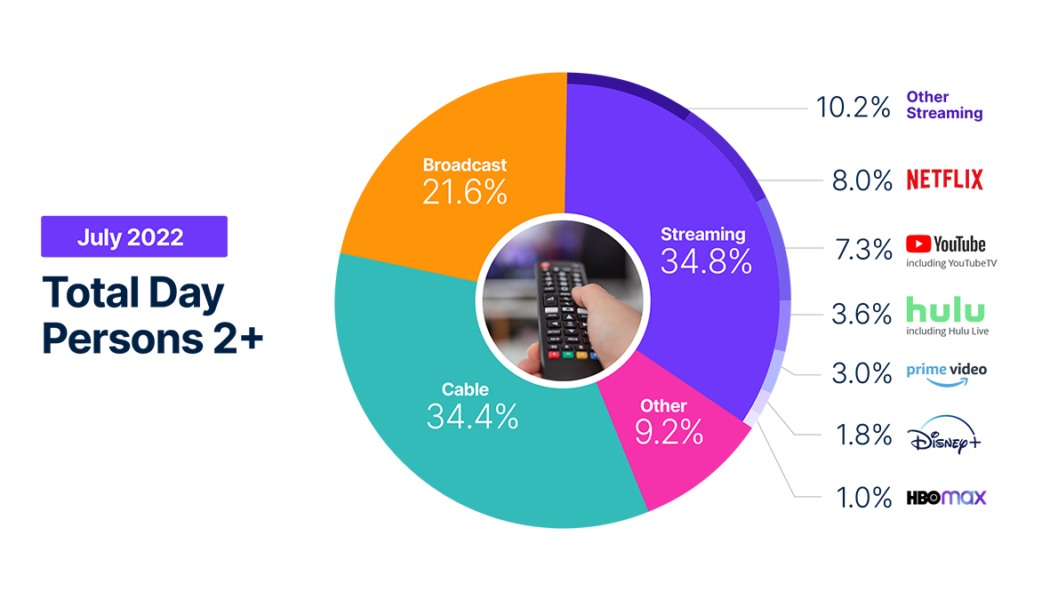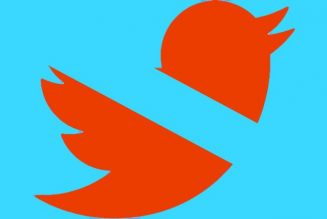More people spent their TV time watching a streaming service than cable or broadcast last month, according to a report from Nielsen (via The Wall Street Journal). The audience measurement company says that this is the first time ever that streaming services have accounted for the biggest chunk of people’s viewing habits.
The report says that services like Netflix, YouTube, and Hulu made up 34.8 percent of people’s watch time, while cable made up 34.4 percent. Broadcast TV made up for 21.6 percent. Added together, traditional TV services still beat streaming, but streaming had the biggest piece of the pie.
:no_upscale()/cdn.vox-cdn.com/uploads/chorus_asset/file/23954724/the_gauge_july_2022.png)
Neilson says that part of the reason fewer people were watching cable is because there weren’t as many sports being broadcast at this time of year. While that won’t be the case later in the year (when sports like basketball and football start their seasons), streaming providers have been slowly acquiring the rights to show games as well. Apple and Amazon are streaming baseball and football, respectively, and Disney has been kicking around the idea of streaming ESPN. With that said, general sports fans still face an expensive, confusing mess when trying to decide how to watch various games.
The report also says that, while streaming services have been trending up, July wasn’t exactly a normal month — it was apparently one of the best months for the amount of time people spent watching streaming services that Nielsen’s ever measured.
This milestone comes at a time when many streaming services are going through or considering big changes, some of which will make them more like cable. Netflix, for example, is looking to introduce an ad-supported tier and limit password sharing. The prices for many streaming services have also been steadily increasing, with Netflix, Disney Plus, and Hulu all seeing price hikes over the past few months.
There’s also the massive amount of streaming services that exist nowadays, similar to how some cable packages offer hundreds of channels. While Netflix was the biggest single streaming service, according to Neilsen’s data, its 8 percent share of the market was overtaken by an “other” category that made up 10.2 percent of the market. The “other” streaming services were basically anything that isn’t YouTube, Hulu, Prime Video, Disney Plus, or the (soon to be changing) HBO Max.









